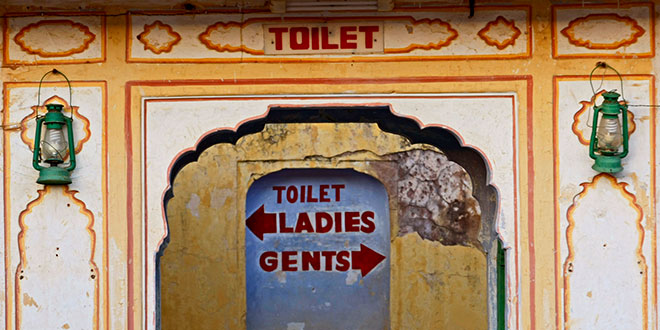New Delhi: On the occasion of World Toilet Day on November 19, Karnataka Chief Minister H.D. Kumaraswamy declared the state’s rural areas free from open defecation. At a state government event held in Bengaluru to mark the occasion, H.D. Kumaraswamy made the announcement and said, “Earlier statistics showed that only half or one-third of the rural households had individual toilets, but presently, all the 70.2 lakh rural households in Karnataka have been provided with individual toilets, thereby reducing open defecation.”
Mr Kumaraswamy further added that in four years of Swachh Bharat Mission, the state’s Rural Development and Panchayat Raj department has built 45 lakh toilets in the rural areas of the state. Currently, Karnataka has 26,533 villages, 5,888 gram panchayats and 23 districts that have been successfully declared open defecation free.
Mr Kumaraswamy adds,
While the central government has been pushing for ‘Swachh Bharat’ Mission to make the country open defecation free by October 2, 2019, Karnataka has executed it ahead of time.
On the other hand, Karnataka’s urban sanitation scenario remains in a bad shape with sanitation coverage moving only up to 50.84 per cent from 30 per cent in 2014.
Karnataka had a target of declaring small and medium cities ODF by October 2, 2017 and another 100 urban local bodies (ULBs) ODF by December 2017, but sadly none of the deadlines have been met. Till date, construction of over 2 lakh toilets, 6,000 community toilets have been achieve. And out 277 urban local bodies 132 has been made free from open defecation. Major cities and corporation in the urban parts of the state such as Bengaluru, Hubli, to name a few still struggles to achieve the ODF tag.
Also Read: Meet 35-Year-Old Green Warrior From Bengaluru, Who Is Planting Trees Across India Since 2007
Steps Taken To Make Karnataka Open Defecation Free
To achieve the mammoth task of becoming an ODF region, in rural parts of Karnataka, every Saturday was designated as ‘Swachh Shanivara’ in which various cleanliness activities were undertaken to spread awareness so that the state can fulfill its swachh goals and go ODF.
Moreover, the rural areas also launched a new campaign ‘Swachhameva Jayate’ earlier this year with a motive of achieving 100 per cent sanitation coverage by 2018. The door-to-door activity was headed by children of primary and secondary schools where children were made responsible for educating people on the importance of building a toilet at home, along with other parameters of cleanliness, hygiene, toilet usage and waste management.
Also Read: Bengaluru Couple Develops Eco-Friendly Alternative To Plastic Bin Bags
ODF Status Achieved, What’s Next For Karnataka
After achieving the ODF tag, now Karnataka aims for ODF Plus status (which means total sanitation in terms of solid waste management, improved sewerage lines, stormwater drains and pucca cement roads, in addition, to open defecation free). The Rural Development department said that a comprehensive programme for tackling waste management problems in rural areas will begin from this year itself. Currently, over 2,600 tonnes of waste is generated in rural Karnataka on a daily basis, and according to the state pollution control board’s 2016 report, less than 50 per cent of it is recycled or sent to recycling centres. To manage this waste effectively, Karnataka plans to make work related to recycling of solid waste a part of the Mahatma Gandhi National Rural Employment Guarantee Act (MNREGA). By doing so, activities such as waste collection, waste transportation and segregation will get government guaranteed employment, for which participants will be duly paid.
NDTV – Dettol Banega Swachh India campaign lends support to the Government of India’s Swachh Bharat Mission (SBM). Helmed by Campaign Ambassador Amitabh Bachchan, the campaign aims to spread awareness about hygiene and sanitation, the importance of building toilets and making India open defecation free (ODF) by October 2019, a target set by Prime Minister Narendra Modi, when he launched Swachh Bharat Abhiyan in 2014. Over the years, the campaign has widened its scope to cover issues like air pollution, waste management, plastic ban, manual scavenging and menstrual hygiene. The campaign has also focused extensively on marine pollution, clean Ganga Project and rejuvenation of Yamuna, two of India’s major river bodies.





























Sonia
November 21, 2018 at 9:31 pm
Chitguppa in Karnataka still has open defecation.